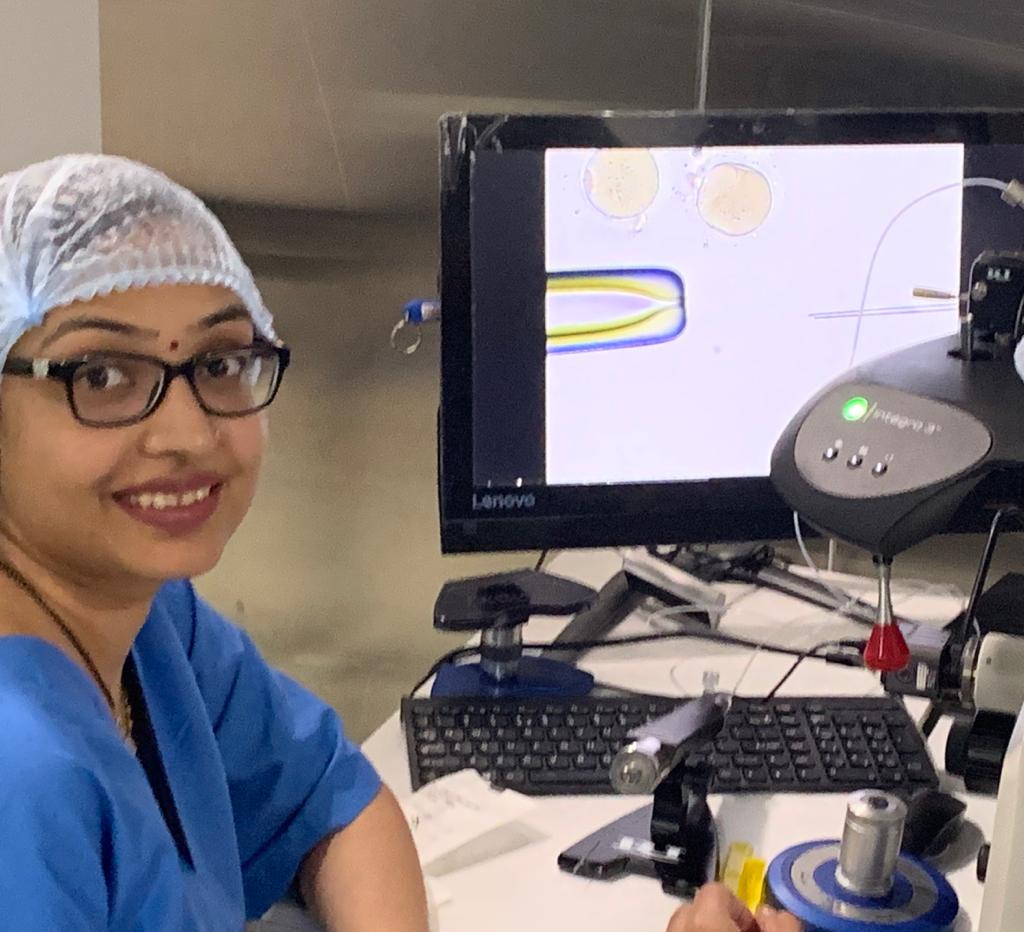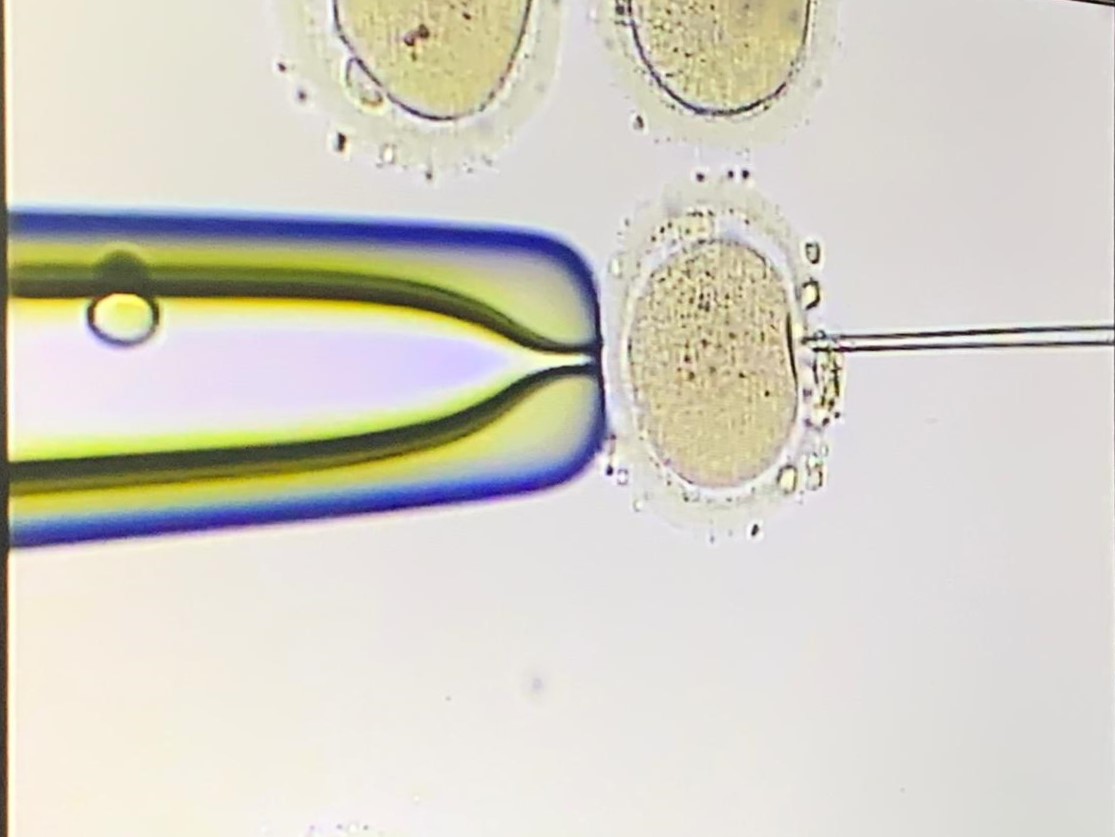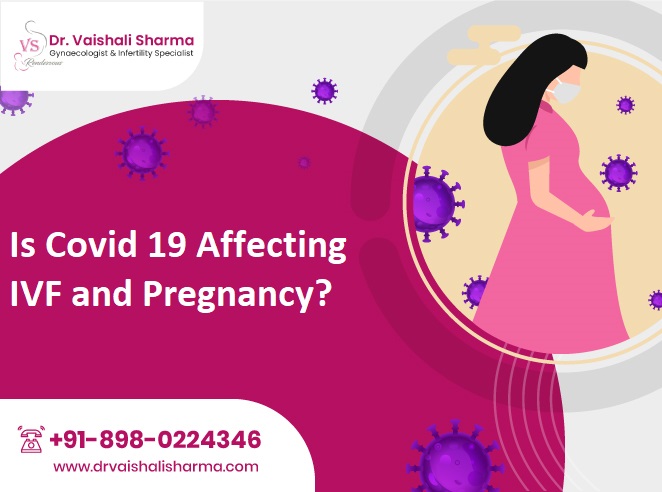ICSI Treatment in Delhi

In the Intracytoplasmic sperm injection (ICSI) treatment in Delhi only one sperm is required and it is injected directly into the egg. Then the fertilized egg is carefully transferred into the uterus.
In ICSI treatment, the sperm does not have to travel towards the egg and it does not even need to penetrate the outer layer of the egg. The entire process is carried out in the laboratory at the IVF Centre with the help of highly advanced equipment. When there is male infertility like immobility of sperm, low sperm count, poor quality of sperm and abnormally sperm, then this method is very useful.
ICSI Treatment Procedure in Delhi
For Women
Just like the standard test tube baby treatment in Delhi, you will be given fertility drugs to stimulate the ovaries in order to produce matured eggs to initiate the process of fertilization. When the eggs are matured and successfully collected, semen of your spouse will be collected and undergo a special process of gathering healthy sperms for initiating the ICSI treatment procedure in Delhi.
Take a Second Opinion From Our IVF Specialist
For Men
The semen sample can be produced naturally or in some cases, surgical procedure is carried out when the male partner is having difficulty in ejaculating. For carrying the testicular sperm aspiration, our doctors will operate the patient under local anesthesia. And with the help of a fine needle, sperms will have aspired from the epididymis or testicles. The collected sperms are then frozen and carefully thawed with the highest possible manner. Any discomfort after the TESA surgery can be easily treated with painkillers.
Fertilization
In ICSI treatment in Delhi, after collecting the gametes, the eggs and the sperms are fertilized in a glass in the laboratory. Then with the help of a microscope and a fine needle, a single high-quality sperm is injected directly into the egg penetrating the outer layer. After two days, the egg is fertilized and it becomes balls of cells which is now called an embryo.
Blastocyst
The ICSI procedure in Delhi does not follow the same steps as IVF. After observing the embryo until the blastocyst culture, the IVF doctor in Delhi will freeze the embryo and then carefully thawed for initiating the process of embryo transfer. Then the doctor plants the embryo into the uterus, which is carried forward through your cervix with a fine catheter.
Embryo Transfer
The embryo can be transferred two to three days after the process of fertilization with the help of Intracytolplamic sperm injection treatment in Delhi. The blastocyst and the frozen embryo may help you to increase the chances of conception. If all goes well, then your embryo will attach to the walls of the uterus and continue to grow to be your baby. After two weeks, we will call you to take a pregnancy test and to confirm your pregnancy.
Step by Step Guide of ICSI Treatment

Injecting the sperm directly into the egg is the only difference between the ICSI and the IVF. The chances of getting pregnant often increase by 75% to 80% with the help of ICSI. ICSI is usually done to treat male fertility. But nowadays, it is done in most of the cases. Our view about ICSI treatment has been changed with the availability of advanced technology. The ICSI process in Delhi is more followed by our doctors than earlier. And we have learned more ways for ICSI treatment guidance to treat male infertility and to help female to conceive.
When you are ready to talk about your infertility issues, we’re here.
Who might be recommended for ICSI?
ICSI treatment in Delhi is generally used to treat male infertility. But there are few cases where our IVF experts recommend ICSI in Delhi India along IVF treatment with high success rate.
- Low or zero sperm count
- Poor sperm quality
- Immobility of sperms
- Abnormal sperms
- Previous IVF without fertilization
- For couples have low egg collection
- Problems getting an erection and ejaculation
Benefits of ICSI
The benefits of intracytoplasmic sperm injection treatment are more when compared to the other conventional methods of assisted reproduction. As the best ICSI centre in Delhi, we have the best facilities along with the best ICSI treatment doctor in Delhi. With our modern equipment, we can avail the following benefits along with the ICSI treatment.
- It increases the fertilization rates when compared to the other fertilization methods.
- It helps you to have a genetic child when other assisted reproductive techniques failed.
- It also increases the chances of cryopreservation of embryos which will be preserved for years.
- It helps to conceive for couples with unexplained infertility.
Success Rate of ICSI Treatment in Delhi
The ICSI success rate treatment in Delhi is higher than the other IVF methods. Although the success rate of ICSI depends on your age, your fertility problem, the chances are good if you are younger and healthier. Here are the live births that might be possible with the help of Intra-cytoplasmic sperm injection (ICSI) treatment also adding ICSI procedure in IVF can increase your overall IVF treatment cost but in return provides you the high success rate.
- The chances of pregnancy are 35% if you are under 35 years
- There are 30% chance if you are between 35 years and 40 years
- You will have just 14% chances if you are above 40 years.
Take a Second Opinion From Our IVF Specialist












